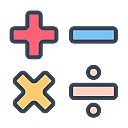Quants Menu
- HCF and LCM
- Number System
- Number Decimals & Fractions
- Surds and Indices
- Divisibility
- Ages
- LCM
- HCF
- Inverse
- Speed Time and Distance
- Work and Time
- Boats and Streams
- Pipes and Cisterns
- Averages
- Allegations and Mixtures
- Ratio and Proportions
- Simple & Compound Interest
- Simple Interest
- Compound Interest
- Percentages
- Profit & Loss
- Successive Discount 1
- Successive Discount 2
- AP GP HP
- Arithmetic Progressions
- Geometric Progressions
- Harmonic Progressions
- Probability
- Permutation & Combination
- Combination
- Circular Permutation
- Geometry
- Heights and Distances
- Perimeter Area and Volume
- Coordinate Geometry
- Venn Diagrams
- Set Theory
- Algebra
- Linear Equations
- Quadratic Equations
- Logarithms
- Clocks
- Calendars
- Clocks and Calendars
- Finding remainder of large powers
PREPINSTA PRIME
Divisibility Questions and Answers
Divisibility Questions and Answers in Aptitude
On this page we have discussed about the Divisibility Question and answer along with the definition and rules and question with detailed explanation.
Definition
A number "a" is said to be divisible by another number "b" if "a" can be divided by "b" without leaving any remainder.
Formula
The formula for checking divisibility of a given number is Dividend = (Divisor x Quotient) + Remainder.

Rules of Divisibility :
| Divisibility rule of 2 | Any number whose last digit is an even number (0, 2, 4, 6, 8) is divisible by 2 |
| Divisibility rule of 3 | A number is divisible by 3 if the sum of its digits is divisible by 3. |
| Divisibility rule of 4 | A number is divisible by 4, if the number formed by the last two digits is divisible by 4. |
| Divisibility rule of 5 | A number is exactly divisible by 5 if it has the digits 0 or 5 at one’s place. |
| Divisibility rule of 6 | A number is exactly divisible by 6 if that number is divisible by 2 and 3 both. It is because 2 and 3 are prime factors of 6. |
| Divisibility rule of 7 | Double the last digit and subtract it from the remaining leading truncated number to check if the result is divisible by 7 until no further division is possible |
| Divisibility rule of 8 | If the last three digits of a number are divisible by 8, then the number is completely divisible by 8. |
| Divisibility rule of 9 | It is the same as of divisibility of 3. Sum of digits in the given number must be divisible by 9. |
| Divisibility rule of 11 | If the difference of the sum of alternative digits of a number is divisible by 11, then that number is divisible by 11. |
| Divisibility rule of 12 | A number is exactly divisible by 12 if that number is divisible by 3 and 4 both. |
| Divisibility rule of 13 | Multiply the last digit with 4 and add it to remaining number in a given number, the result must be divisible by 13. |
| Divisibility rule of 15 | If the number divisible by both 3 and 5, it is divisible by 15. |
| Divisibility rule of 17 | Multiply the last digit with 5 and subtract it from remaining number in a given number, the result must be divisible by 17 |
| Divisibility rule of 19 | Multiply the last digit with 2 and add it to remaining number in a given number, the result must be divisible by 19. |
Prime Course Trailer
Related Banners
Get PrepInsta Prime & get Access to all 200+ courses offered by PrepInsta in One Subscription
Also Check Out
Divisibility Questions and Answers

×
Please login to report
Get over 200+ course One Subscription
Courses like AI/ML, Cloud Computing, Ethical Hacking, C, C++, Java, Python, DSA (All Languages), Competitive Coding (All Languages), TCS, Infosys, Wipro, Amazon, DBMS, SQL and others
- HCF and LCM – Questions Formulas | How to Solve Quickly | Tricks & Shortcuts
- Number System – Questions | Formulas | How to Solve Quickly | Tricks & Shortcuts
- Number Decimals & Fractions – Questions | Formulas | How to Solve Quickly | Tricks & Shortcuts
- Surds and Indices – Questions | Formulas | How to Solve Quickly | Tricks & Shortcuts
- Ages – Questions | Formulas | How to Solve Quickly | Tricks & Shortcuts
- LCM – Questions | Formulas | How to Solve Quickly | Tricks & Shortcuts
- HCF – Questions | Formulas | How to Solve Quickly | Tricks & Shortcuts
- Inverse – Questions | Formulas | How to Solve Quickly | Tricks & Shortcuts
- HCF and LCM –
Questions
Formulas |
How to Solve Quickly |
Tricks & Shortcuts - Number System –
Questions |
Formulas |
How to Solve Quickly |
Tricks & Shortcuts - Number Decimals & Fractions –
Questions |
Formulas |
How to Solve Quickly |
Tricks & Shortcuts - Surds and Indices-
Questions |
Formulas |
How to Solve Quickly |
Tricks & Shortcuts - Ages –
Questions |
Formulas |
How to Solve Quickly |
Tricks & Shortcuts

 Apply For Jobs
Apply For Jobs Get Hiring Updates
Get Hiring Updates




Login/Signup to comment